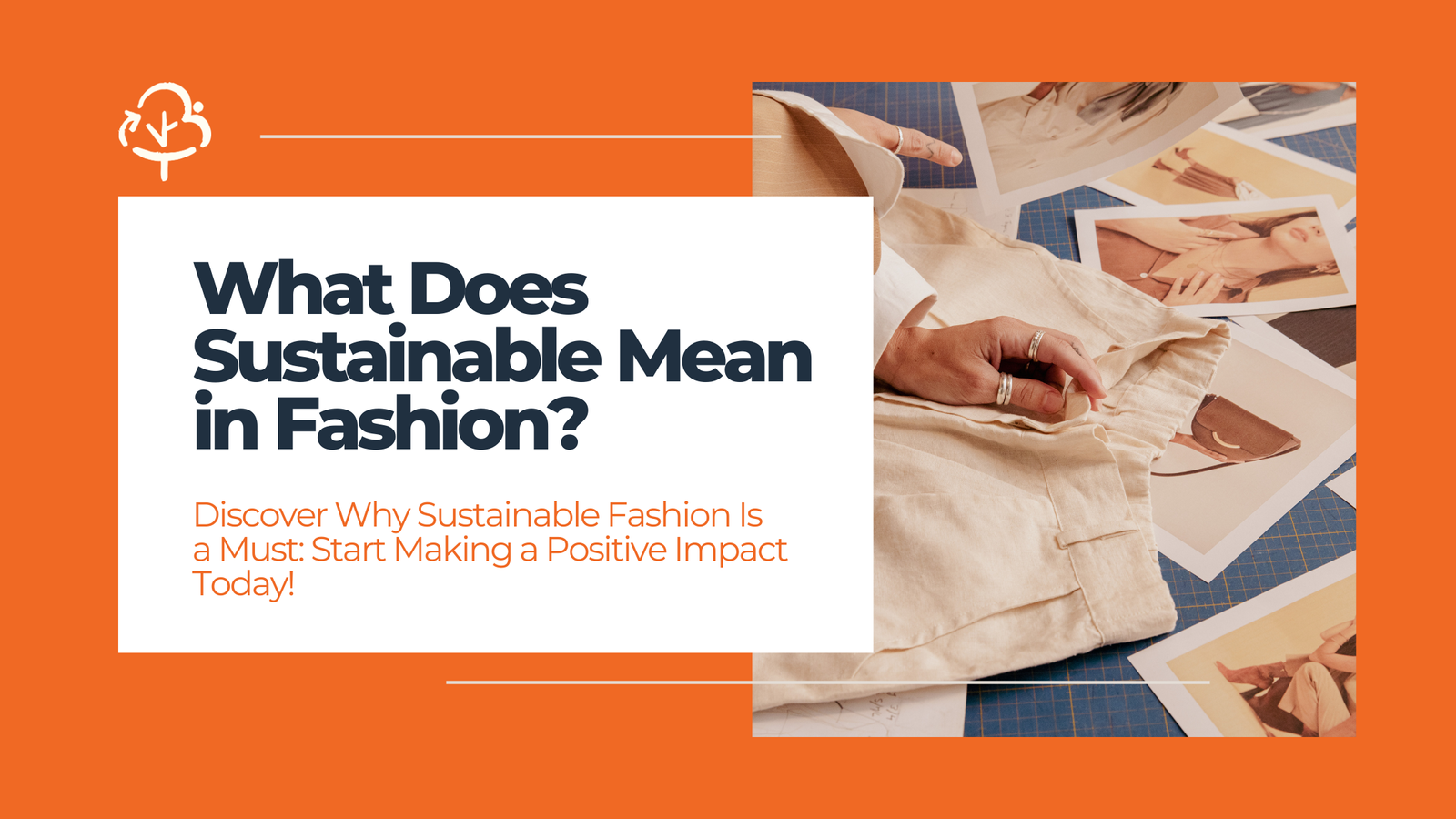
What Does Sustainable Mean in Fashion?
In recent years, the global apparel industry has seen a significant shift towards eco-consciousness, transforming both consumer behaviour and manufacturing practices. This burgeoning trend towards sustainable fashion, which has been quietly gaining momentum over the past decade, now appears poised for a dramatic surge. From innovative packaging solutions to a redefined approach to consumer spending, the sector is undergoing unprecedented changes aimed at fostering environmental stewardship and ethical production.
What is Sustainable Fashion?
Sustainable fashion focuses on creating clothing that minimises environmental impact and ensures fair treatment of garment workers. Leading sustainable clothing companies champion eco-friendly production practices, using sustainable and natural materials that leave a minimal environmental footprint, even after disposal. Ethical fashion brands assure that your wardrobe choices are not only stylish but also conscientiously crafted, featuring high-quality fabrics and innovative production methods. In essence, sustainable fashion embodies clothing that is both ethically made and environmentally friendly.
How is Sustainable Fashion made ?
Sustainable fashion is produced through several key practices aimed at reducing environmental impact and promoting social responsibility. Manufacturers prioritise using natural and organic materials, which are grown without harmful chemicals to ensure biodegradability and minimise landfill waste. The production process focuses on responsible practices such as minimising waste, reducing energy consumption, and utilising renewable energy sources. This includes opting for eco-friendly manufacturing techniques like natural dyeing instead of toxic chemicals, ensuring that every stage of production aligns with sustainable principles.
What is Sustainable Clothing made of ?
Sustainable clothing primarily consists of natural and organic materials that are grown and harvested without pesticides or chemicals harmful to the environment. These materials include wool, linen, and organic cotton, which are chosen for their biodegradability and low environmental impact. Additionally, sustainable clothing may incorporate recycled fibres derived from post-consumer waste, reducing the need for new raw materials and further minimising environmental footprint. By prioritising these materials and production methods, sustainable fashion strives to create clothing items that are both eco-friendly and socially responsible throughout their lifecycle.
What are examples of Sustainable Fashion practices?
Sustainable fashion practices involve making thoughtful choices to lessen environmental impact and promote ethical shopping. This includes buying from brands that prioritise sustainability and ethical production, opting for high-quality items less frequently, and considering secondhand or rental options to extend clothing lifespans. Recycling textiles and garments, transforming old clothes into new styles, and participating in clothing swaps are also important steps towards creating a more sustainable fashion industry. These practices not only reduce waste but also encourage a shift towards more responsible and circular fashion consumption habits.
Why is Sustainable Fashion important ?
The fashion industry is a big problem for our planet, ranking just behind the oil industry as one of the world’s largest polluters. It’s responsible for 20% of global industrial water pollution. Most clothes are actually made from plastic, which could lead to a big problem with tiny bits of plastic spreading everywhere. Textile mills around the world use lots of harmful chemicals that are bad for the environment and the people who work with them. It’s clear that we need a big change in the fashion industry. This change has to be all about sustainable fashion.
How does TriCycle promote Sustainable Fashion?
At TriCycle, we promote sustainable fashion by incorporating eco-friendly materials into our clothing production and partnering with local artists in Bali. This approach not only minimises environmental impact but also integrates local craftsmanship and culture into our designs, fostering community engagement and promoting ethical practices within the fashion industry. Additionally, for every three product purchases made, we plant one tree, contributing to global reforestation efforts and supporting a greener future.












